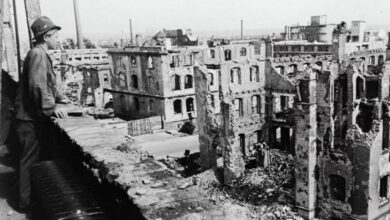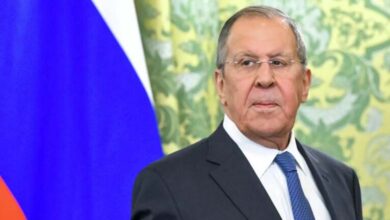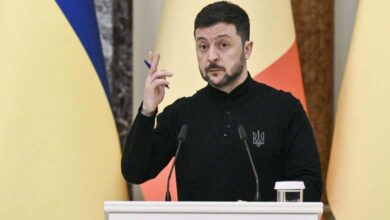After an investigation in the case of ‘Namaa Tunisia’, the judiciary prevents Ghannouchi from traveling

After 9 hours of investigation in the case of the “Namaa Tounes” charity association involved in financing associations and organizations linked to terrorism, the investigating judge in the anti-terrorism judicial branch in Tunis decided yesterday to release Rached Ghannouchi, leader of Ennahda, the political arm of the Muslim Brotherhood in Tunisia, with a travel ban.
Tunisian radio station “Mosaïque” reported that the investigating judge decided to keep Rached Ghannouchi in the case, known by the media as “Namaa Tounes”, in the case. He was charged with money laundering for the association involved in financing terrorist organizations, with issuing a travel ban on him, and the investigating judge was responsible for communicating with the concerned authorities to implement the decision related to the libel against Ghannouchi.
Ghannouchi was accompanied by more than 15 lawyers, the majority of whom are leaders of the Muslim Brotherhood Movement, including Zeineb Brahmi, Ahmed Néjib Chebbi, Nourreddine Bhiri, the Minister of Justice in the Ennahdha government, Reda Belhaj, Abderrazak Kilani, Fethi Keroud, Naji Zouari, Sami Taradi and Salah Ben Aicha. Bhiri himself is accused of manipulating the 2013 assassinations of political activists, notably Chokri Belaid and Mohamed Brahmi, to protect the perpetrators and dispel suspicion from Ennahdha.
According to a confirmed source, the prosecutor requested to issue a deposit card in Mernaqiya prison against Rached Ghannouchi at the end of the investigation, after which he will plead for his defense, according to Mosaïque.
The Accusation Chamber at the Court of Appeal in Tunis decided last Thursday to return the investigation file related to the “Namaa Tunisia” to the investigating judge who pledged to complete his work, including questioning the head of Ennahda who is involved in researching this file.
The decision follows the Indictment Chamber’s rejection of a formal appeal by the public prosecution and the appeal of its decision to keep all 77 defendants free, according to Mokhtar Chamaa, a lawyer and member of the Association’s defense committee.
He added that the appeal of the public prosecutor’s office was aimed at issuing deposit cards against the accused, including the organization’s managing framework, in addition to a former head of government who did not mention his name (in reference to Hamadi Jebali), explaining that the refusal of the public prosecutor’s appeal was formed by the indictment division of the Court of Appeal, which means that all the accused are kept in a state of release.
While Ennahda and its leaders are trying to promote the issue as political, and deny any relationship between Ghannouchi and the Association for Tunisian Development, lawyer Ali Ben Aoun said that the pictures, posts and meetings confirm that Ghannouchi is linked to the association involved in money laundering and smuggling, and funding terrorist-related organizations inside and outside Tunisia. In addition, it was proven that Ennahda was involved in the secret service file, and it was proven that he received foreign funds to finance his election campaign under the “lobbying contracts”.
After investigating the case of the Association “Namaa Tunisia” for money laundering and smuggling, and financing terrorist associations and organizations with a large number of former officials, the investigative judge decided to summon Ghannouchi and his son Moad, Soumaya Ghannouchi, Safaa Jebali, Soumaya Jebali, Hamadi Jebali and Rafik Abdessalem, according to Tunisia News.
According to the available data, the members of the Central Unit for Combating Terrorism and Crimes Affecting the Integrity of the National Territory took charge of the date on which Rached Ghannouchi was informed of the summons addressed to him by the Anti-Terrorism Investigative Judge.
On July 4, the first investigating judge in the 23rd Judicial Bureau of the Anti-Terrorism Judicial Branch issued a decision to freeze the funds and assets of a number of individuals in the case related to the “Namaa Tunisia”. The list of individuals included Ennahdha President Rached Ghannouchi, his two sons Moad and Soumaya Ghannouchi, his son-in-law Rafik Abdessalam, and former Prime Minister Hamadi Jebali, his two daughters, his son-in-law and others.
The investigating magistrate in the Court of First Instance in Ariana issued a decision to prevent the travel of Rached Ghannouchi, on the background of the file of the secret service of his party, and the case presented by the defense committee of Chokri Belaid and Mohamed Brahmi, on the Secret Service being behind political assassinations.
In early February, the defense of the martyrs Chokri Belaid and Mohamed Brahmi revealed in a press conference with “documents” the involvement of Ennahda and its leader Rached Ghannouchi in the political assassinations of a number of political activists, foremost among them Belaid in the Brotherhood. It also revealed the involvement of Ghannouchi, his son and others in money laundering crimes, and suspicious financial movements with parties linked to the State of Qatar to finance the travel of young Tunisians to Syria to join ISIS camps, as well as attacks on the internal security of the state and spying on Tunisians.
Ridha Al-Radawi, a member of the defense committee of Chokri Belaid and Mohamed Brahmi, said at the same press conference: An association established in 2011 under the name “Namaa Tunisia” aimed at encouraging foreign investments, was involved in the crimes of travel (sending young Tunisians to fight in conflict and war zones), and preliminary penal research was opened, which was soon pursued by the Brotherhood’s “Ennahdha” movement through its arm in the judiciary, and the investigation was stopped.
“One of the accused parties is a person called Najeh Hadj Latif, who manages the business of the leader of the Brotherhood of Tunisia, one of his hidden arms, and was an agent for a company that works in the textile field in Tunisia. This company was originally British and he was expelled from it”, he said.












